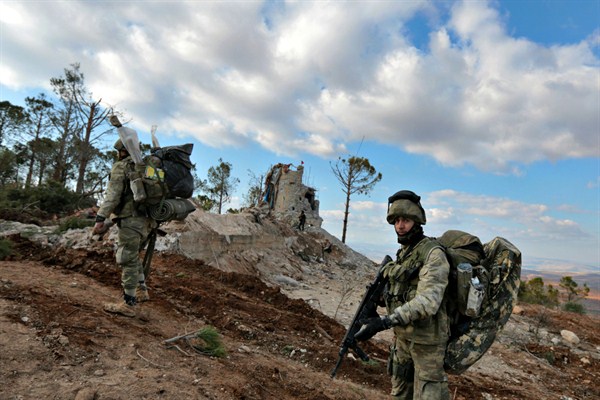Week by week, month by month, the horrific war in Syria grinds on, killing combatants from many countries and, most tragic of all, Syrian civilians—the unintended or, in many cases, intended victims of the warring parties. As Liz Sly and Loveday Morris wrote recently in The Washington Post, “A war that began with peaceful protests against President Bashar al-Assad is rapidly descending into a global scramble for control over what remains of the broken country of Syria, risking a wider conflict. Under skies crowded by the warplanes of half a dozen countries, an assortment of factions backed by rival powers are battling one another in a dizzying array of combinations.”
It’s easy to look at the Syrian war as uniquely horrible, the catastrophic result of geography, Assad’s craven brutality, the spread of jihadism and its malignant ideology, and foreign intervention. But in reality Syria is emblematic, a frightening window into the future of war.
Security experts have worked for years to understand the changing character of war, recognizing that only by understanding it can the world find solutions, or at least ways to mitigate violence. Inspired by the complex conflicts in the Balkans that followed the breakup of Yugoslavia in the 1990s, British academic Mary Kaldor, for instance, described what she called the “new wars” that she believed would dominate the post-Cold War security environment. These conflicts, Kaldor argued, would be fought by shifting combinations of states and nonstate actors. They would be based on identity factors like ethnicity or religion, rather than political ideology. The combatants would use fear and terror to control the population. And the combatants would finance their efforts through predation and crime, leading to “war economies” that give the combatants a vested interest in keeping the violence going.

